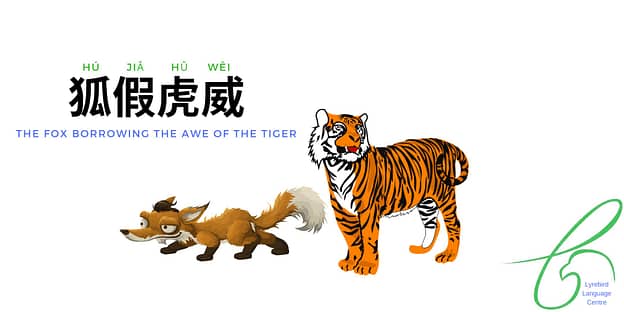成语 (Chéng Yǔ, Idiom) is an important part of Chinese culture, especially in Chinese literature. It is a kind of Chinese wisdom.
Most 成语 (Chéng Yǔ, Idiom) are derived from ancient literature, the earliest 成语 (Chéng Yǔ, Idiom) was created over 2,500 years ago and many of them are still used today.
Generally, 成语 (Chéng Yǔ, Idiom) consist of four Chinese characters with a story behind them. There are at least 5,000 成语 (Chéng Yǔ, Idiom) in the modern Chinese language and about 1,000 to 2,000 成语 (Chéng Yǔ, Idiom) are often used. However, as a foreigner, if you know 10 成语 (Chéng Yǔ, Idiom) you will surprise a lot of people.
Memorising 成语 (Chéng Yǔ, Idiom) is not simply a study of Mandarin, but also provides an experience of the Chinese wisdom in the stories behind it.
Here is one we thought very useful for the recent dialogue.

This story is from《战国策 Zhan Guo Ce》(Stratagems of the Warring States) , a book about the stories during the Warring State Period (500 – 300 BC).
Here is the story in ancient Chinese:
” 虎求百兽而食之,得狐。狐曰:“子无敢食我也!天帝使我长百兽;今子食我,是逆天命也。子以我为不信,吾为子先行,子随我后,观百兽之见我而敢不走乎!”
虎以为然,故遂与之行。兽见之皆走。虎不知兽畏己而走也,以为畏狐也。“
In modern Chinese:
“老虎是百兽之王。一天,它捉到一只狐狸,狐狸说:“你不敢吃我!上帝任命我为百兽之王,你要吃了我,就是违抗天意。你要是不信,我在前面走,你在后面跟着,看看是不是所有的动物见了我都吓得逃跑。” 于是老虎决定跟着狐狸去看看。果然,动物们都吓得要命,四处奔逃。老虎不知道动物们是怕它,以为它们真是害怕狐狸。”
And here comes the English:
“A Tiger is hunting for prey and caught a fox. The fox said “You dare not eat me! God appointed me the king of the animals. If you eat me, you’ll be disobeying his orders. If you don’t believe me, follow me. You’ll soon see all the other animals run away in fear when they see me. ”
The tiger thought it was true and followed the fox. When all the animals saw them coming they run away. Not realising that they were afraid of him, the tiger thought they were afraid of the fox. “
And the result: Not sure. The tiger let the fox go OR The tiger eats the fox. Your imagination.
This story is normally used for the little guy to borrow the power of the big guy to achieve their own purpose in a derogatory term.
American president J.F Kennedy used this “Tiger story” in his inaugural speech in 1961 saying “… sought power by riding the back of the tiger …”.
However, the full sentence is: “those who foolishly sought power by riding the back of the tiger ended up inside.”
Now you understand the meaning of “狐假虎威“. Can you make a sentence using this Chinese 成语 (Chéng Yǔ, Idiom) now?
If you like to learn more 成语 (Chéng Yǔ, Idiom) or get a free copy of “Best Ten 成语 (Chéng Yǔ, Idiom) “, please contact us.